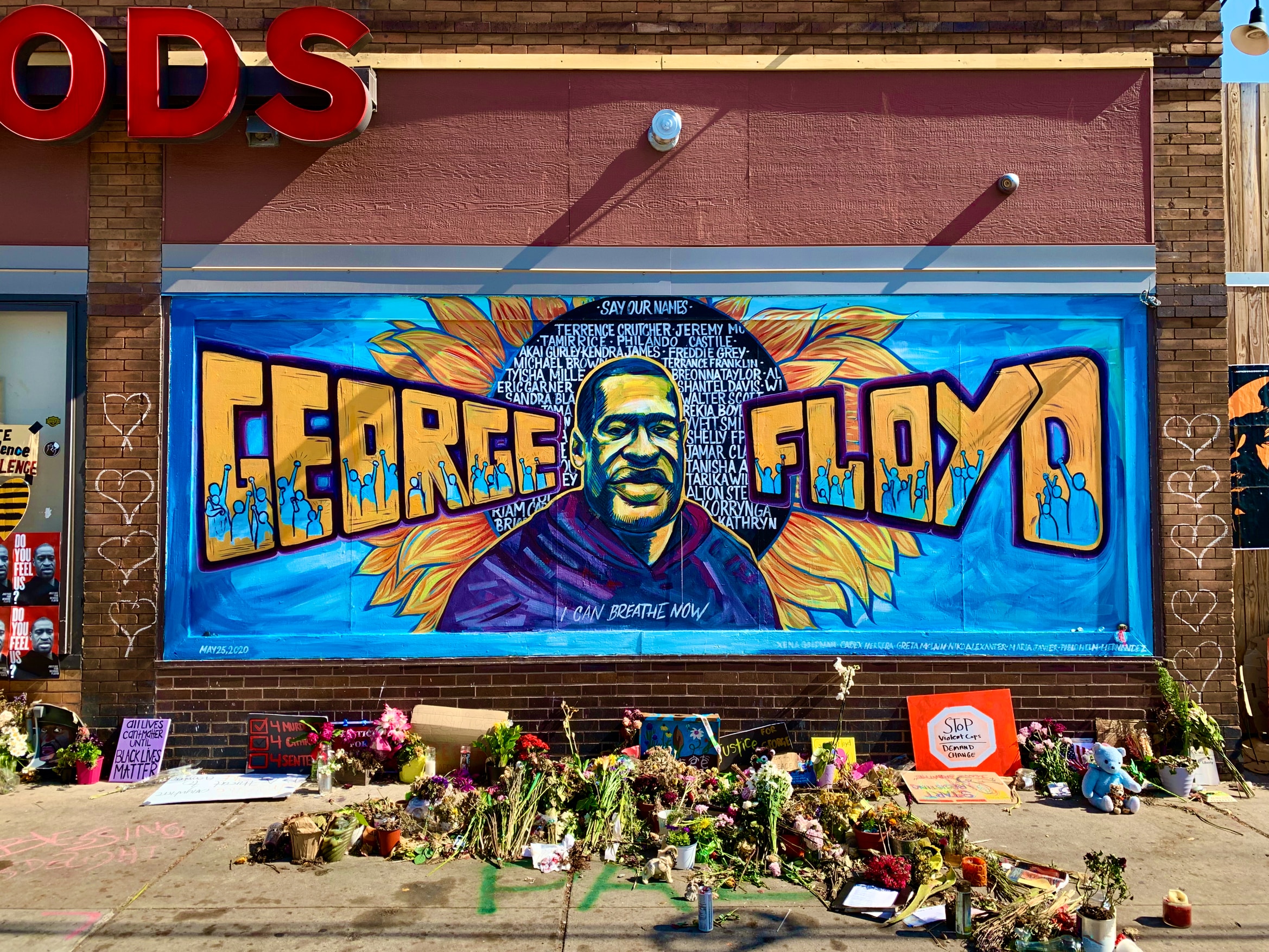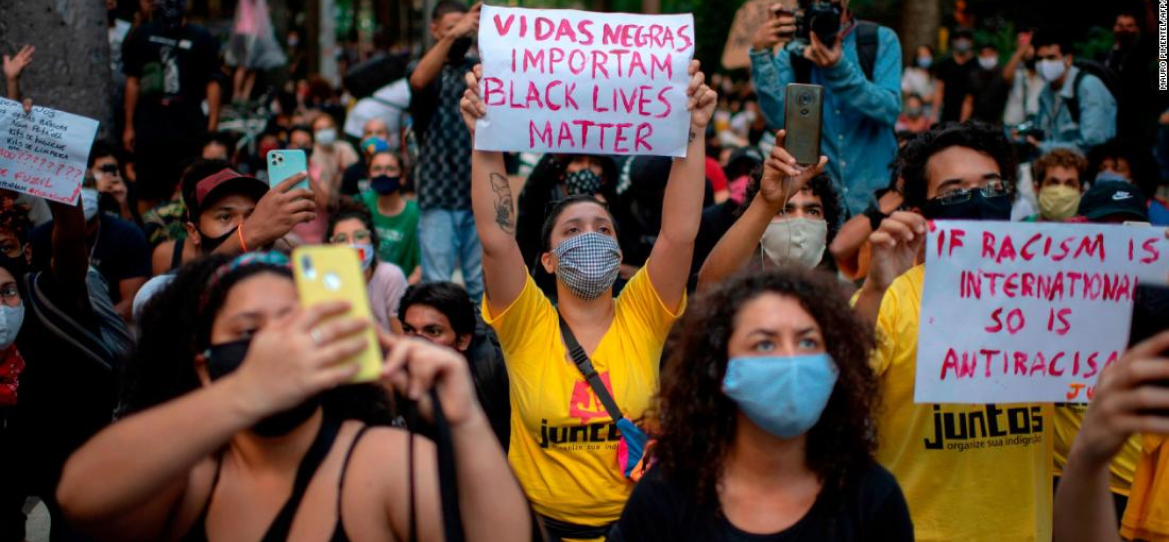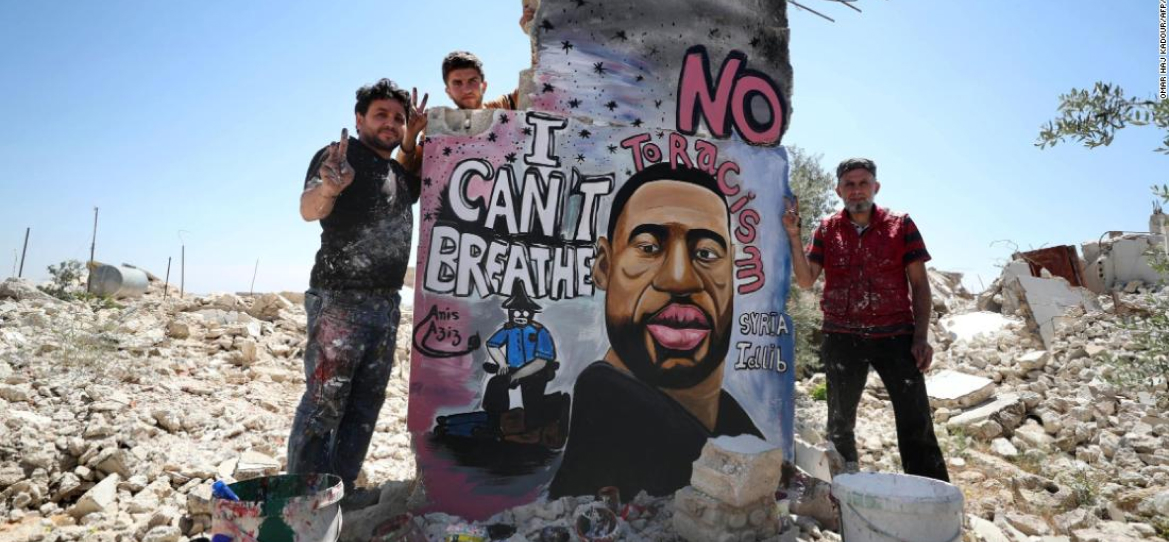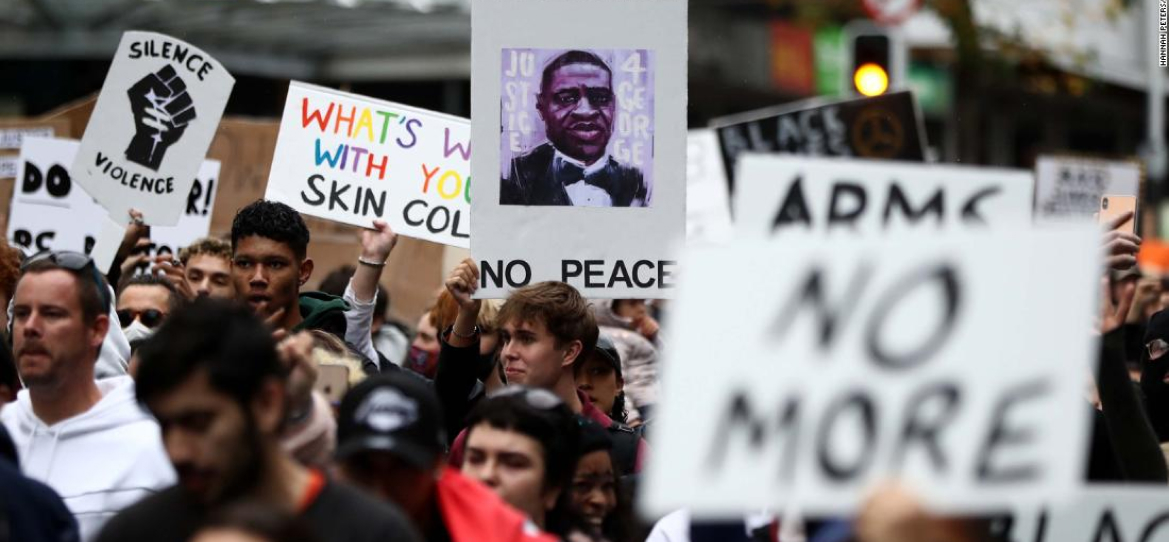Global Education’s Anti-Racist Imperative

We say his name— George Floyd— as we do the others. Lo decimos en español; 我们说他的名字. George Floyd.
We know in global education that language matters. We know that while names can be limiting, the act of calling something by its name—or calling someone by name—gives that something or someone more power because we assert that we recognize it. We know that saying George Floyd’s name at this time and in this context is a small assertion of a belief in social justice and one very small step in the pursuit of anti-racist education. We assert that we see George Floyd—and the lives that he also represents—when we say his name.
In global education we have seen students make connections outside of their home communities. We have seen them learn and say the name of the “Other,” which, in turn, helps them to name more of themselves. We have taught them that it is not only about the self-fulfilling recognition of difference, but also about the knowledge, skills, attitudes, and habits required to shift from seeing oneself in the world to recognizing one’s power in the world. When we say their names, we assert our hope that our students of today will not have to name another George Floyd tomorrow.

People protested outside the Guanabara Palace, the home of the state government, in Rio de Janeiro on Sunday, while in Sao Paulo, some brought signs showing solidarity with the US protests to an existing demonstration against President Jair Bolsonaro. Image and caption courtesy of CNN (Zamira Rahim and Rob Picheta, 2020)
Today we see protests across the world pushing conversation, self-reflection, and action—all in response to an event that is all too common for too many in our nation and across the globe. Unfortunately, George Floyd is both the name of a man as well as yet another sign of institutionalized racism in society today. George Floyd’s name is on the lips of the world right now because injustice in the face of racial inequity knows no national borders. What we see in the news, and what we might see in our streets or in our homes, is a human outcry against the boundaries that are developed in our unconscious when a person is taught—sometimes unintentionally—that some places, people, and populations matter more than others. We say their names because we understand that asserting that Black Lives Matter is an assertion that all lives matter.
Global education is—at its core—about equipping students with the competencies to thrive in a multicultural world filled with injustice, and to take meaningful action toward the common good locally, nationally, and internationally. Global education is anti-racist education, but only when this intention is explicit in the design and when biases are exposed. As global educators, we hope to help our students understand that we all play a role in systemic, institutionalized racism, for worse or for better: it’s part of what makes this time in the United States so globally relevant and part of what makes racism and cultures of white supremacy such difficult societal challenges to overcome.

Syrian artists Aziz Asmar and Anis Hamdoun created a mural depicting George Floyd in the town of Binnish, in Syria’s northwestern Idlib province, on Monday. Image and caption courtesy of CNN (Zamira Rahim and Rob Picheta, 2020)
We must commit to helping our students see the value in acknowledging their roles in the omnipresent and omnipotent dialogue that shapes difference and, therefore, harnesses the potential to combat injustices at their very core. While we may want to provide channels through which our students and school communities can take action to impact positive change, we know that acts in the pursuit of justice do not always come from an informed place and can propagate the very inequities that fed into the injustices in the first place. We also know that at this moment an empathetic citizen of the world is considering their/her/his own identities and how these identities will play a role in both the work that each of us has to undertake as well as the agency that we can—and should—have in making change.
We need to help our students talk and listen more—more frequently, and more meaningfully. We must acknowledge that language matters and that we harness power by speaking out and taking informed action. We need to provide authentic opportunities to say the wrong thing or to show our emotions, all the while affirming that the goals, visions, and hopes for the dialogue itself are shared. We can do this as educators by rededicating ourselves to global education that is anti-racist and teaches students how to engage courageously in cross-cultural dialogue to take informed action in the face of injustices, near and far. We need to remember that it starts with the words, to have faith that the words have power, and to believe that the message is the truth: while we may not use the same words, we must all be part of the message.

Protests over Floyd’s killing were held in multiple locations across New Zealand on Monday. Thousands held demonstrations and vigils in cities including Auckland and Christchurch, while crowds braved the rain to hold a vigil in Wellington. Image and caption courtesy of CNN (Zamira Rahim and Rob Picheta, 2020)